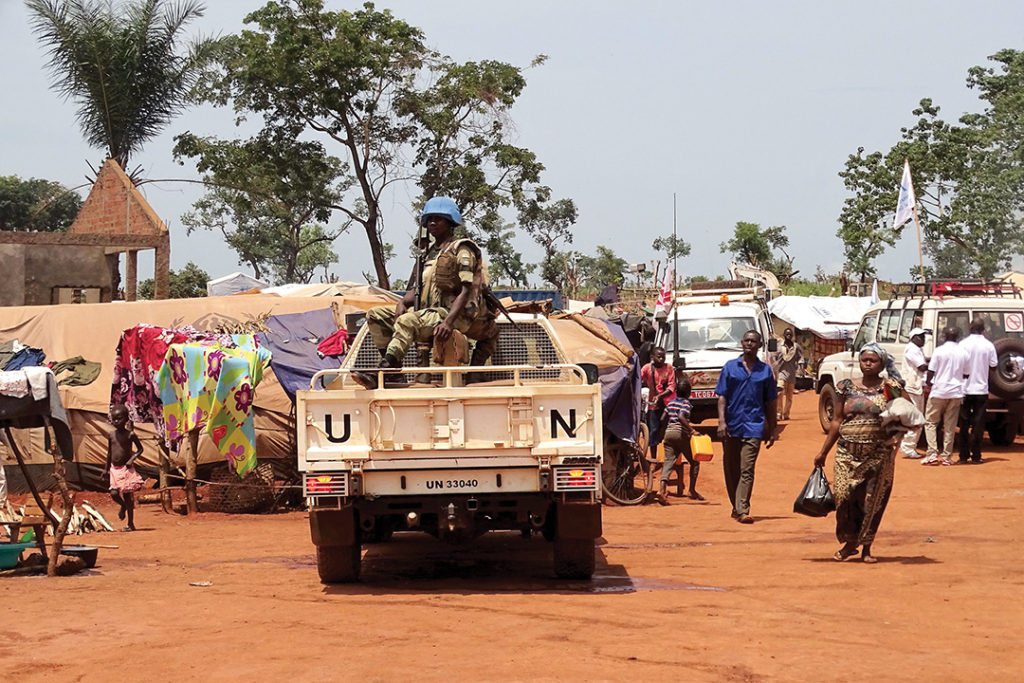ADF STAFF
After three years of internal conflict in the Central African Republic, the African Union in late 2013 deployed the African-led International Support Mission to the Central African Republic (MISCA). Its mandate was to “help protect civilians, stabilize the country, and restore state authority over the territory, as well as create conditions conducive to the provision of humanitarian assistance.”
Researchers Mor Djandame Mbow and Issaka Souaré say that MISCA applied “a very high standard to its own personnel, including military personnel, in their dealings with civilians.” That included investigating its own personnel after the forced disappearance of some civilians.
In 2014, the United Nations transitioned 6,000 MISCA personnel to the U.N. Multidimensional Integrated Stabilization Mission in the Central African Republic (MINUSCA). As of the end of 2017, the force of 14,076 included 10,246 troops and 2,020 police officers.
The U.N. chartered MINUSCA “with the protection of civilians as its utmost priority.” Its other tasks have included humanitarian assistance; the promotion and protection of human rights; support for justice and the rule of law; and disarmament, demobilization, reintegration and repatriation processes.
In May 2017, security in the southeast part of the country began to deteriorate, with increased attacks over four months against civilians, humanitarian workers and MINUSCA personnel. The U.N. commissioned an investigation into the attacks, and the results were released in early 2018 by the APO Group, a media relations company in Africa. The findings give a window into the problems peacekeepers face in protecting civilians.
The investigation found that MINUSCA has a well-established protection-of-civilians strategy. It has functioning early-warning mechanisms. But the investigation showed that the preparations did not work as preventive actions. There also were shortcomings in civil-military-police planning and field-level operations. Some of the police and Soldiers did not have a clear understanding of protection of civilians.
On a positive note, the investigation showed that there was no evidence of MINUSCA showing partiality to any armed groups or communities.
Retired Brig. Gen. Fernand Amoussou of Benin led the investigation and recommended that MINUSCA review its protection of civilians “to ensure that its operational response is better aligned to and supported by its political engagement and that the mission’s civilian components are more proactively involved,” the report said.
Amoussou also said the U.N. and MINUSCA should work with countries that are contributing Soldiers and police officers to make sure they have an accurate understanding of the requirements for protecting civilians, “with an emphasis on the role of commanders and senior leadership.”

